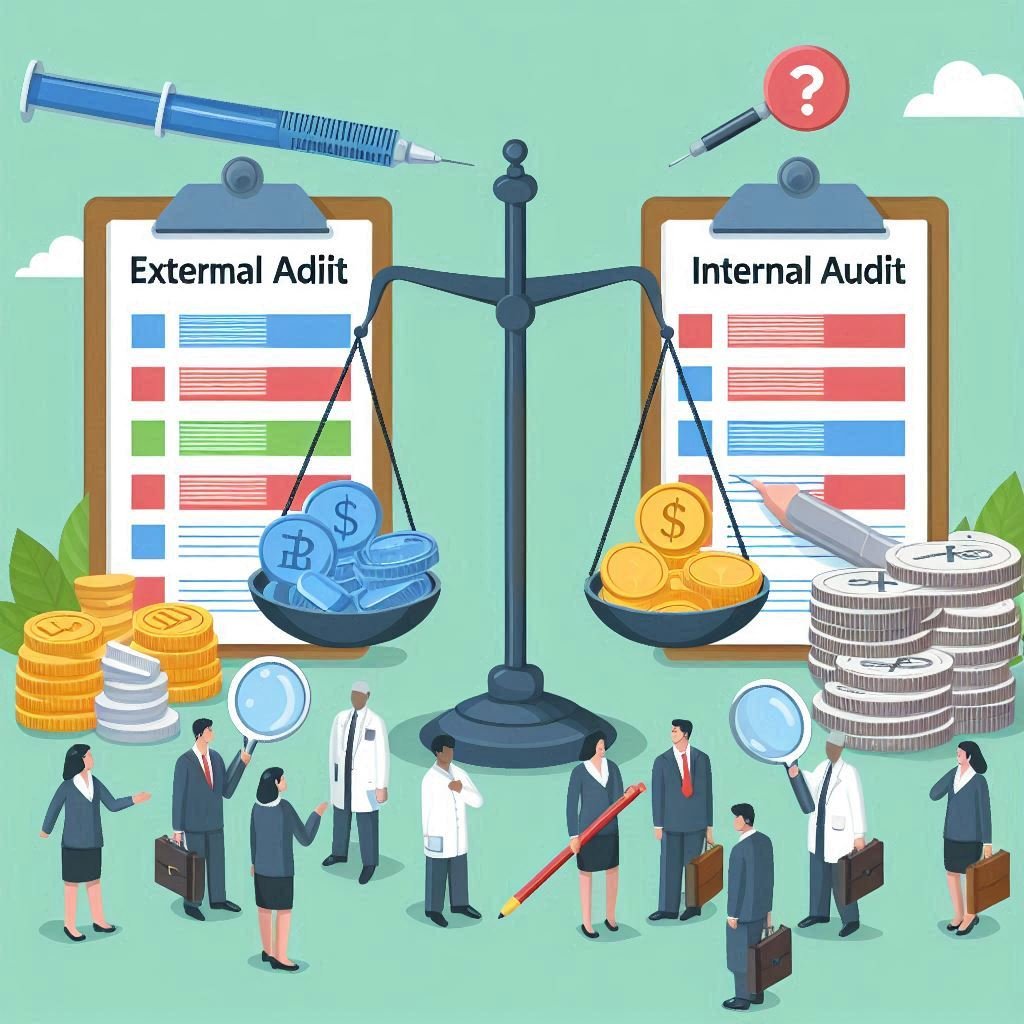Learn difference between External Audit and Internal Audit with FAQs
The key difference between External Audit and Internal Audit includes the auditor’s independence, audit scope (internal processes vs. financial statements), reporting audience (management vs. external parties), and purpose (operational improvement vs. financial validation). Both external audit and internal audit play a vital role in managing quality, safety and efficacy of Active Pharmaceutical Ingredients (APIs).
An external audit is an independent, mandatory review of financial statements by a third-party auditor, providing an opinion on their accuracy for external stakeholders like shareholders and creditors. In contrast, an internal audit evaluates a company’s internal controls and operational efficiency to help management identify risks and improve processes.

An external audit is typically scheduled or unannounced, designed to assess and verify compliance with both national and international pharmaceutical regulations and standards. The successful completion of such an audit may lead to critical outcomes, including certifications, regulatory approvals, and the granting of operational licenses, ensuring adherence to industry best practices and legal requirements.
An internal audit in the pharmaceutical industry is a thorough and independent evaluation of a company’s operations, processes, and systems to ensure compliance with internal procedures, regulatory standards, and quality requirements. Conducted by the company’s internal audit team, these audits are a key component of a robust quality management system. They play a vital role in identifying potential risks, non-conformities, and areas for improvement, ultimately driving enhancements in product quality, safety, and operational efficiency. By proactively addressing these findings, internal audits help safeguard regulatory compliance and support continuous improvement across the organisation.
The following are the 5 main differences between External Audit and Internal Audit:
1. Purpose and Scope:
2. Independence:
3. Frequency:
4. Outcome and Impact:
5. Focus Area:
| Aspect | External Audit | Internal Audit |
|---|---|---|
| Purpose | To provide an independent opinion on financial statements for external stakeholders. | To assess internal controls and operational efficiency for management’s improvement. |
| Auditor | Conducted by an independent third-party auditor. | The auditor is independent from the organization. |
| Scope | Focuses on financial statements and compliance with regulations. | Focuses on internal processes, controls, risk management, and operational efficiency. |
| Independence | Reported to management and the board of directors. | Auditors are internal staff, thus less independent. |
| Reporting Audience | Reported to external stakeholders (shareholders, creditors, regulators). | Reported to management and board of directors. |
| Frequency | Annual, typically required by law or regulation. | Ongoing or periodic, depending on the company’s needs. |
| Regulatory Requirement | Legally required for public companies and some private entities. | Not legally required, but recommended for operational efficiency. |
| Focus | Accuracy and fairness of financial reporting. | Improving internal processes, risk management, and controls. |
| Level of Detail | Primarily focuses on high-level financial statements. | Involves in-depth analysis of internal processes and systems. |
Both internal and external audits are integral to maintaining high standards in the pharmaceutical industry. Internal audits help companies identify areas for improvement, ensuring compliance with internal procedures and regulatory requirements while driving continuous enhancement in product quality and operational efficiency. External audits, on the other hand, provide an objective review, verifying adherence to national and international standards, and often result in essential certifications, regulatory approvals, or operational licenses. Together, these audits foster a culture of accountability, compliance, and quality, ultimately ensuring the safety and efficacy of pharmaceutical products in the market.
The internal audit is performed by the internal team or consultant, whereas the external audit is performed by regulatory agencies
Related:
Further Reading
Quick Links